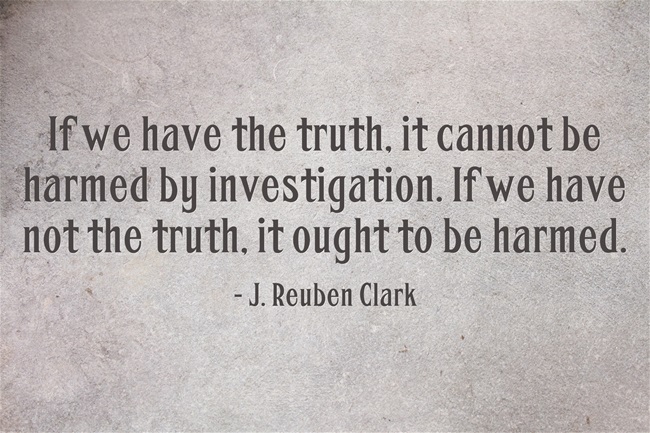For about the last six months the LDS church has been releasing a series of Gospel Topics essays. Elder Snow, a general authority and the current Church historian explained the need for these essays back in December.
"The First Presidency and the Quorum of the Twelve both have been very supportive of this process, I think they sense the need to provide accurate information to our members to counter a lot of sensationalism that tends to come about online or on the Internet over some of these historical topics."
The church is a little bit of a pickle. They recognize that many of the details that they would like to not dwell on are pretty easily accessible. I think Elder Snow is essentially admitting that the internet has forced their hand and they would rather not address these issues at all. But I applaud them for trying. But that is where my praise stops.
I have read every one of these essays and I have been rather disappointed. The essays skirt some issues, minimize others, provided long-winded responses that don’t answer the fundamental question, and in some cases clouds the issue even more. It makes me wonder, to whom are these essays addressed. Initially I was under the impression that they were for any member who was having doubts and looking to restore their faith. With every subsequent essay I have been lead towards a different conclusion.
I believe that all along these essays were meant for the true believing faithful member. I now believe that the only reason they are writing them is so that they can be used to counter the claim that the church is hiding its history. Kudos for doing that much. But there is so much more that needs to be addressed that they are avoiding.
Included in each of these essays is their “ace in the hole”, their “get out of jail free” card. In the essay released today it read,
“The book of Abraham’s status as scripture ultimately rests on faith in the saving truths found within the book itself as witnessed by the Holy Ghost.”
There are quite a few problems with this statement.
First, It is circular reasoning. An outside objective source besides the book itself would be helpful. I’d be willing to say that every pious follower of every faith in the world could make the same claim and the world is no closer to any agreement on which is true.
Second, If ultimately the only thing that matters is our feelings about it then why write an entire essay trying to explain away the questionable providence of the book? Seriously, I wish more theological discussions would start with this statement. Basically it is a confession that you value your subjective feelings over anything else a critic could present. Fine, you have faith. I've blogged before about how I don't understand this method of finding truth, but I have nothing to counter that. But don’t then turn around and try to make objective truth claims based on your subjective feelings. Again, any follower of any faith could make this same claim and we are no closer to resolving the disagreement.
I don’t envy Elder Snow. It’s a tough predicament and I don’t know how I would handle it if I were in his shoes. If they are too forthcoming they risk challenging the testimonies of members who didn’t already have questions. If they say nothing they will continue to be criticized for whitewashing their history. I guess the tactic they took is about the best I could expect. I just wonder what is says about an organization, any organization, when being simply being honest and transparent with your history is such a liability.
It’s a madhouse! Public health under the heirs to Lysenko (and Dr. Zaius)
in 2025
-
As 2025 barrels towards its depressing conclusion, I look back at the
damage federal science and medicine have sustained thus far under Donald
Trump and ...
2 days ago




